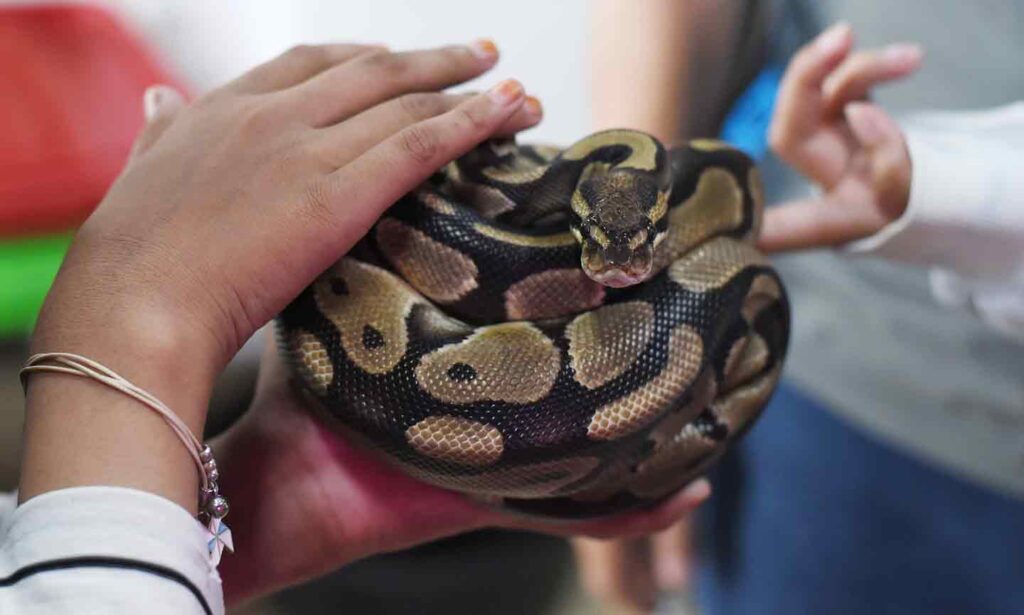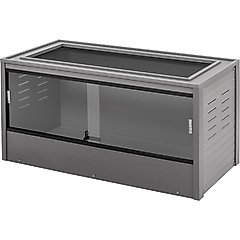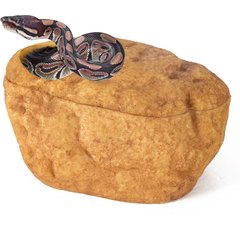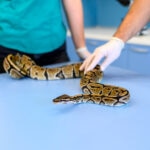Do Snakes Like Being Pet? The Essential Guide to Handling Snakes

Photo by Riza Azhari/iStock / Getty Images Plus
Do Snakes Like Being Pet?
Almost all snakes need to be handled at some point, whether it’s being moved from one area to another for a medical procedure or feeding. However, petting is different. This activity is done solely for the enjoyment of both the snake owner and the reptile. But do snakes actually enjoy it?
According to Kourtney Grimm, DVM, veterinarian at Pekin Animal Hospital in Pekin, Illinois, and vice president of the Association of Reptile and Amphibian Veterinarians, different snakes have different likes and dislikes. Some reptiles have more docile personalities, which could mean they’re more open to being pet. She recommends ball pythons, corn snakes, and king snakes, which make good pets because of their calm personalities. While that’s not a guarantee they’ll enjoy a good pet from time to time, it may help your chances.
When you bring a new snake home, Dr. Grimm suggests immediately taking them to a reptile veterinarian. During that initial exam, you can discuss safe handling and petting procedures. Consulting with an experienced reptile veterinarian can be especially helpful if this is your first pet snake.
Recommended Products
Pro Tip: If you’re bringing home a new snake, let them adjust to their surroundings before engaging in a lot of handling or petting. This can help prevent unnecessary stress for your new pet snake.
How To Pet a Snake: Step-by-Step Instructions
You can try petting if your reptile is friendly and open to handling. Here are some step-by-step instructions for beginners for the first time you try to pet your snake:
1. Start in a Secure Area
Make sure you are in a safe place. You’ll need someplace with a good heat source, to help keep your snake’s body temperature comfortable and consistent. Snakes are escape artists, so be sure you are in an enclosed location too. That way, if your pet snake slithers away from you, they won’t wind up lost or in a dangerous situation.
2. Observe Your Snake
Ensure your pet snake is awake and moving around normally. A snake that is moving naturally will move smoothly and seem alert. You will notice frequent tongue movements as they look around to observe the environment. If your snake doesn’t seem alert, it’s best to try at another time.
3. Wash Your Hands
Always use clean hands when handling your snake. Never try to pet your reptile after offering food, especially if you’ve recently handled prey items like rodents. Your snake may accidentally bite your hand, thinking it is prey!
4. Use Two Hands
With both hands, pick up your snake. Use both hands to support your snake’s body the entire time you hold them. Never dangle your snake from your arms, since this could injure your pet.
5. Allow Your Snake To Move
Let your reptile move freely in your hands and arms, and watch for signs of stress. If you see your snake rapidly moving their head or repeatedly attempting to get away, it’s a sign they’re getting stressed out by your interaction and that you should return them to their enclosure.
Don’t try to place your snake around your neck. A snake, especially if they’re larger, can start to feel unstable on a person’s neck, and may constrict and accidentally injure you.
6. Pet the Back of Your Snake
You can gently run your fingers along their back as your snake moves around. Be careful not to touch sensitive areas, such as their mouth, spectacles (special scales that cover the eyes), or cloaca (an opening for excreting waste and laying eggs).
7. Wash Your Hands When You’re Done
Always wash your hands thoroughly after handling or petting your snake. According to Dr. Grimm, practicing good hygiene around all reptiles is crucial. That’s because most, if not all, reptiles carry Salmonella bacteria. While these bacteria usually do not cause problems in snakes, it can lead to serious illness in people. As a result, snakes may not be the best pets for very young children or individuals with compromised immune systems.
While petting your snake, Dr. Grimm recommends taking time to observe them. Take note of their natural movements and demeanor when they are content. A significant change in behavior or attitude could indicate a medical issue, which means it’s time to contact your veterinarian.
Where To Pet a Snake

pixinoo/iStock / Getty Images Plus
While every reptile is unique, the safest areas to pet are:
- On the back of the head
- Down the back of the body
It’s also best to pet your snake in the direction of their scales. In other words, start at the head and move toward the tail.
Areas To Avoid
Never touch your snake’s mouth, spectacles, or cloaca, as these are sensitive areas for your pet snake. Touching them in any of these spots could irritate them.
When Not To Handle Your Snake
Humans give off signs when we don’t want to be touched, and pet snakes are no different. Your reptile may enjoy love and attention, but sometimes they just don’t want to be handled or pet. Avoid handling your snake during these times:
- Shedding: Dr. Grimm doesn’t recommend handling a snake when they are shedding. Handling or petting during the shedding process could be very stressful for your pet snake.
- Sleeping: It’s better to handle your snake when they are awake, so be cautious if you need to pick up a sleeping snake. You don’t want to scare or startle them.
- Hiding: If your snake is trying to hide or slither away from you, handling them may be unsafe. Likewise, if your snake buries in the substrate, removing them from their terrarium is not a good idea unless absolutely necessary. (For example, if you need to give them medication or get them to a veterinarian appointment.)
- After feeding: Remember, snakes are carnivores, so be extremely careful if you are handling your reptile right after offering food. This is especially true if you have recently handled rodents. Your snake may smell the food on you, and bite your hand or arms if they think you are prey. Make sure you wash your hands thoroughly.
- Hissing: If your snake is hissing, that is a clear sign they do not want to be pet or handled.
Pro Tip: Children should always be supervised by adults when handling snakes. Ideally, an adult should hold the snake while the child pets them.
What If Your Snake Doesn’t Like To Be Pet?
Unfortunately, some snakes just don’t like to be pet. That doesn’t mean your snake will lead a sad and lonely social existence; they’re just not a touchy-feely kind of creature.
So, what steps can you take to ensure your snake has a high quality of life? Start by making their environment as enriching as possible.
- Give them areas to hide and substrate to dig in their terrarium or tank.
- Add climbing options to their enclosure.
- Introduce a water fountain for drinking.
Different species of snakes will enjoy different activities and environments, so talk to your reptile veterinarian about the best options for your snake.
FAQs About Petting Snakes
Can snakes bond with humans?
Yes, snakes can absolutely bond with humans! In fact, petting your snake is great bonding time. It can help you observe your snake under normal, healthy circumstances. This way, if you notice a behavior change—your snake not coiling up or not eating like normal—you can consult your veterinarian.
Can I play with my snake?
You can’t play catch with your snake like you can with a dog, of course, but there are lots of opportunities to provide enrichment for your pet snake. Dr. Grimm recommends adding furniture or climbing options to your reptile’s terrarium. This will help give your pet a good quality of life, and keep them happy and entertained.
What is the friendliest snake to own?
Dr. Grimm recommends ball pythons, corn snakes, and kingsnakes. These are good pet snakes because they have friendly and docile personalities, making them low maintenance and great pets for beginners. She says snake owners should avoid venomous snakes. Additionally, many states have banned the ownership of giant snakes.
Every snake is unique. Some may enjoy gentle handling or petting, while different snakes prefer less contact. Don’t worry if your pet snake isn’t fond of petting. There are plenty of other ways to provide excellent care and enrichment for your reptile.





